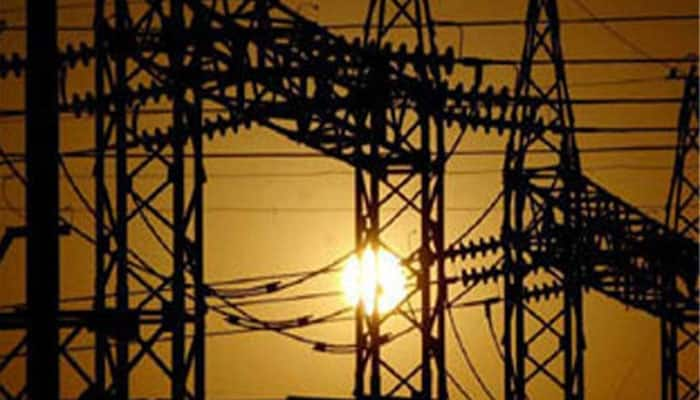New Delhi: In a bid to rescue almost bankrupt state electricity retailers, the Cabinet tonight approved a scheme for rejig of Rs 4.3 lakh crore debt of the utilities besides measures to cut power thefts and align consumer tariff with cost of generating electricity.
The Union Cabinet, headed by Prime Minister Narendra Modi, approved a scheme to ease the financial crunch facing power distribution companies, or discoms, that has impaired their ability to buy electricity.
Power Minister Piyush Goyal said state governments, which own the discoms, can take over 75 percent of their debt as of September 30 and pay back lenders by selling bonds.
For the remaining 25 percent, discoms will issue bonds.
The central government will ease rules to allow the states participating in the scheme to borrow more and help with the additional burden.
The rescue plan, called Ujwal Discom Assurance Yojna or UDAY, provides "a permanent resolution of past as well as potential future issues of the sector" and empowers the utilities to break-even in next 2-3 years, he said.
"This is through four initiatives - improving operational efficiencies of discoms, reduction of cost of power, reduction in interest cost of discoms and enforcing financial discipline on discoms through alignment with state finances," he said.
Operational efficiency improvements is proposed to be brought in by compulsory smart metering, upgradation of transformers and meters to reduce electricity lost during transmission and distribution (or theft) from around 22 percent to 15 percent by 2018-19.
By the same year, the gap between average revenue realised (or user charges) and average cost of supply (or cost at which electricity is procured) will also be eliminated.
"People will not bear the cost of inefficiency of discom. It is states' responsibility to ensure that discoms become financially viable," Goyal told reporter after the Cabinet meeting.
The scheme, which is optional, will be operationalised through signing of MoU.
Goyal said the debt restructuring will reduce the interest cost on loans taken over by the states to around 8-9 percent, from as high as 14-15 percent.
Reduction in cost of power would be achieved through measures like increased supply of cheaper domestic coal, coal linkage rationalization and liberal coal swaps from inefficient to efficient plants.
Also, coal price rationalization based on GCV (Gross Calorific Value), supply of washed and crushed coal, and faster completion of transmission lines will be taken up, he said.
"(State-owned) NTPC alone is expected to save Rs 0.35 per unit through higher supply of domestic coal and rationalization/swapping of coal which will be passed on to discoms and consumers," Goyal said.
While NTPC alone can save Rs 9,000 crore annually through coal swapping, other companies together can save Rs 11,000 crore.
Goyal said discoms in Rajasthan, Uttar Pradesh, Tamil Nadu and Haryana are the biggest loss-making in the country. Besides, 6-7 other state utilities are stressed.
The weakest link in the power supply value chain is distribution, wherein discoms have accumulated losses of about Rs 3.8 lakh crore and outstanding debt of around Rs 4.3 lakh crore (as on March, 2015).
According to the statement, UDAY empowers discoms with the opportunity to break even in the next 2-3 years.
This is through four initiatives including improving operational efficiencies of discoms, reduction of cost of power, reduction in interest cost and enforcing financial discipline on discoms through alignment with state finances.
UDAY assures the rise of vibrant and efficient discoms through a permanent resolution of past as well as potential future issues of the sector, the official statement said.
Operational efficiency improvements like compulsory smart metering, upgradation of transformers, meters etc and energy efficiency measures like LED bulbs, agricultural pumps, fans & air-conditioners etc.
This will reduce average AT&C loss from about 22 percent to 15 percent and eliminate the gap between Average Revenue Realised (ARR) & Average Cost of Supply (ACS) by 2018-19, it said.
UDAY is a shining example of the utilisation of the best principles of cooperative and competitive federalism and has been evolved through discussions at the highest levels with multiple states.
Adopting UDAY is optional for states, but provides the fastest, most efficient and financially most feasible way for providing 24X7 power for all.
It will be operationalised through a tri-partite agreement amongst the Ministry of Power, state government and the discom.
"It accelerates the process of reform across the entire power sector and will ensure that power is accessible, affordable and available for all. It heralds the rise of a powerful India," it added.
















